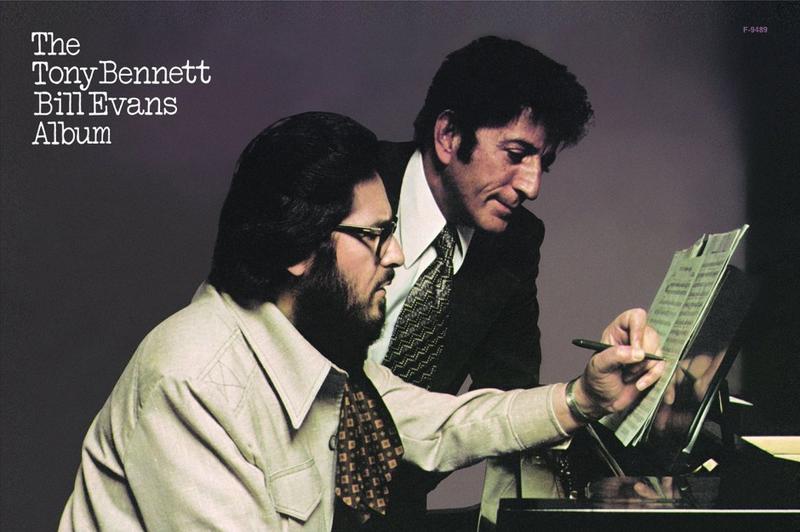
Will Friedwald, author of The Great Jazz and Pop Vocal Albums, is exploring some of the finest recordings of the 20th century on The Jonathan Channel. This week he looks at the meeting of two greats with the music from The Tony Bennett/Bill Evans Album.
Will Friedwald: The Tony Bennett Bill Evans albums are usually cited as Tony’s greatest, and Tony himself would agree. He always says that it’s the most prestigious thing he ever did. And of all the albums he made, these are the two albums he’s most proud of.
It’s not typical Tony Bennett, in fact it’s not typical anybody. There’s nothing quite like it anywhere in recorded music. It’s almost more like a classical duet than what we think of as a singer and a piano player in a jazz or a pop context. Usually a singer backed by piano, it’s very much the singer’s game and the pianist is supporting and following the singer. And it’s the pianists obligation to be supportive while being out of the way. Tony’s greatest accompanist for many years was a gentleman named Ralph Sharon and he was the all-time jedi master at accompaniment. He could support Tony while being invisible himself.
Bill Evans, on the other hand, on this particular record the idea was that they would approach it as equals. It was really the Tony Bennett Bill Evans album as opposed to Tony Bennett being accompanied by Bill Evans. So they’re not conventional duets in the least. It’s an album of voice and piano where the two of them are working together as equals.
Nobody had ever done a duet set like that unless you look at something like Louis Armstrong and Earl Hines on Weatherbird where the two of them are really going back and forth improvising. Tony Bennett and Bill Evans, they are creating simultaneously in a way that’s really unique, that nobody else had ever done, and even Tony didn’t ever go back to it. They really set the bar in a way that both budding jazz vocalists and piano players payed attention to.
I think’s it’s especially remarkable in that it’s purely a jazz record, yet at the same time Tony is never trying to be Ella Fitzgerald. He’s never scatting, he’s never deconstructing and reconstructing a song the way a jazz improviser would. Tony’s working with the material - the music the composer wrote and the lyrics that the lyricist wrote - and he’s personalizing them at every step. You can not confuse Tony’s version of any of these songs with anyone else’s.